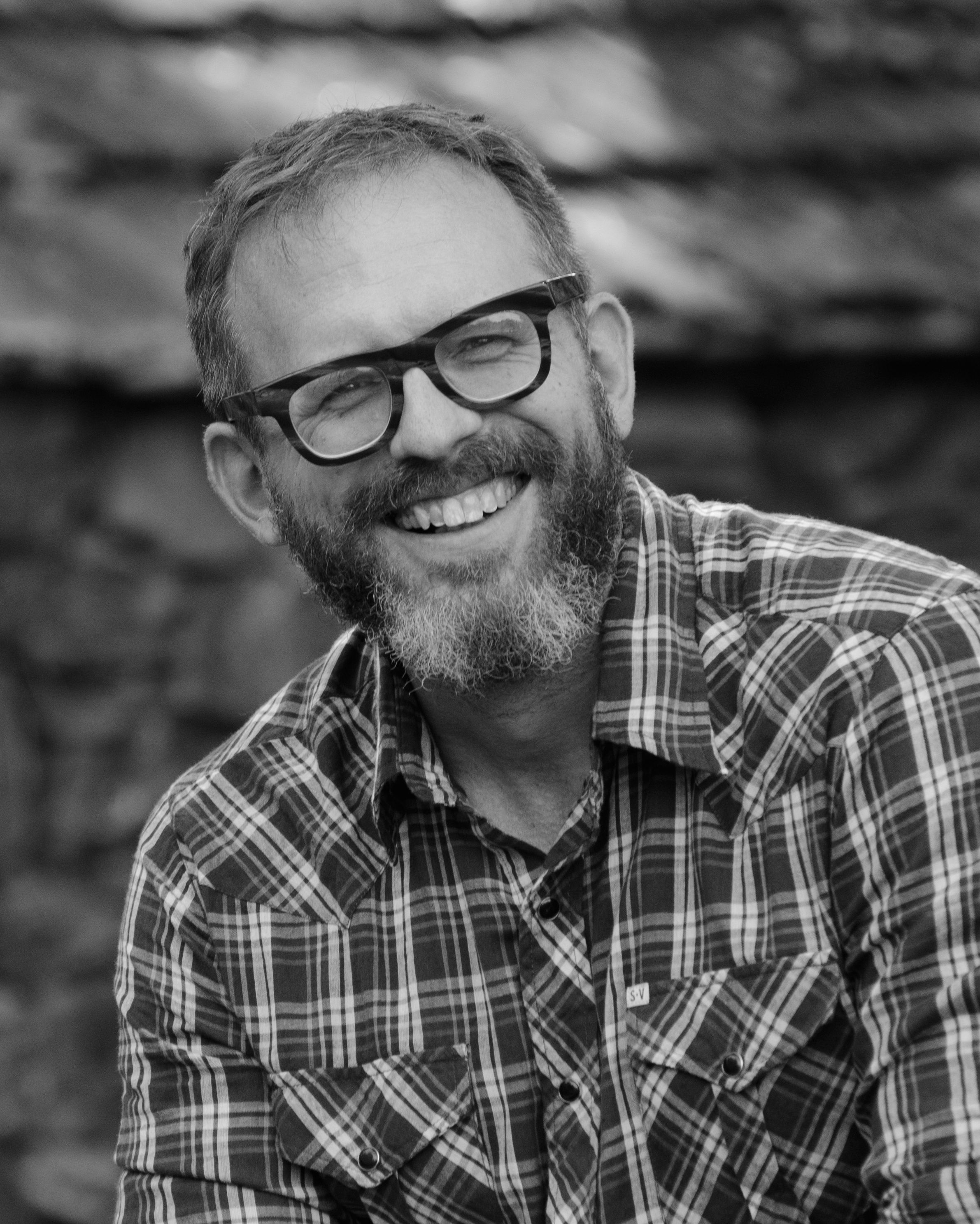The abstract on Acute Care Research competencies for Clinical Research Professionals titled, A Practitioner Inquiry Approach and Assessment, was presented as a poster at the Association for Clinical and Translational Science (ACTS) Translational Science Conference in April 2018 in Washington, D.C. A paper handout of the competencies was also distributed during the poster session.
Community Engagement Spring Speaker Series 2018
Housing, Homelessness and Health was the focus of the CCTST Community Engagement Core Spring Speaker Series on Thursday, April 26, 2018. Featured speakers included Rosanne Haggerty, Jake Maguire and Beth Sandor from Community Solutions, a nonprofit organization based in New York City whose mission is to end homelessness and the conditions that create it.
From 11 AM to 1 PM they led a panel discussion for Community Grand Rounds in Room 6051 of the UC Medical Sciences Building (MSB)
Ms. Haggerty also presented the keynote address for the Speaker Series Dinner and Awards Reception, 6-8 PM in the Kingsgate Marriott Conference Center ballroom, 151 Goodman Drive, UC Academic Health Center campus. CCTST Community Health Grant awardees and Community Leaders Institute graduates were also honored. The networking hour began at 5 PM.
Rosanne Haggerty is the President and CEO of Community Solutions. She is an internationally recognized leader in developing innovative strategies to end homelessness and strengthen communities. In 1990, Rosanne founded Common Ground Community, a pioneer in the development of supportive housing and research-based practices that
end homelessness. To have greater impact, she and her senior team launched Community Solutions in 2011 to help communities solve the problems that create and sustain homelessness, including the development of the 100,000 Homes Initiative.
Acute Care Research Series kicked off with UC’s Heart, Lung, Vascular Institute (HLVI) Lunch & Learn
The Acute Care Research (ACR) Series kicked off with UC’s Heart, Lung, Vascular Institute (HLVI) Lunch & Learn. The Lunch & Learn presentation, The Immortal Cells of Henrietta Lacks (HeLa), was given by ACR Clinical Research Professional (CRP) Advisory Committee member, Becky Ingledue, CCRC.
“Becky is our first volunteer to present in this series. Her passion and enthusiasm for research is contagious!” says Stephanie Schuckman, host of the series and Senior Training Specialist for the Acute Care Research Council (ACRC). Becky chose Henrietta Lacks because ethics and empathy are hallmarks for participants and healthcare professionals to better understand each other’s view about human research. Empathy is the #1 competency for CRPs in the ACR environment, as identified by the ACRC.
Positive evaluations concur: “For a first go around, I think the presentation was great! We discussed as a group the main components in research that are imperative to continuously re-educate those conducting informed consent. Ethics and empathy.”
Environmental Exposures and Autism Risk: Narrowing the Knowledge Gaps
The April CCTST Grand Rounds, held in conjunction with 2018 UC Neuroscience Research Day on April 17, 2018, featured speaker Craig Newschaffer, PhD, A.J. Drexel Autism Institute at Drexel University. Dr. Newschaffer presented: “Environmental Exposures and Autism Risk: Narrowing the Knowledge Gaps”. The presentation took place from 11:30am-12:30pm in MSB 5051.
Autism spectrum disorders are highly heritable and, consequently, there has been much focus on the genetic underpinnings of autism over the past two decades at the dawn of the “genomics” era. However, it is also likely that there are environmental aspects to autism’s etiology as well. Discovering and confirming environmental risk factors is quite challenging. This presentation will review why we are not further along in revealing environmental autism risk factors and will present some of the more novel approaches that have been launched to address these challenges.
Target Audience: Target audience: physicians, healthcare practitioners, researchers, community health advocates.
UC Neuroscience Research Day also included a poster session which began at 8:30 am in the CARE/Crawley atrium. Awards were presented at 12:30 p.m. in 5051 MSB following the lecture. Dr. Newschaffer also presented at Pediatric Grand Rounds on A Public Health Science Approach to Autism at 8:00 a.m. in Cincinnati Children’s Sabin Auditorium.
The University of Cincinnati is accredited by the Accreditation Council for Continuing Medical Education (ACCME) to provide continuing medical education for physicians.
The University of Cincinnati designates this live activity for a maximum of 1 AMA PRA Category 1 Credit™. Physicians should claim only the credit commensurate with the extent of their participation in the activity.
CRPs, NPs, PAs and RNs can count approved activities certified for 1 AMA PRA Category 1 Credit™ for professional credit reporting purposes. Other healthcare professionals should inquire with their certifying or licensing boards.
2018 Acute Care Research Symposium: Driving the Future - Integrity and Innovation in Acute Care Research
The first annual Acute Care Research (ACR) Symposium was held April 9, 2018 from 8:00 a.m.–noon in Cincinnati Children’s Location S1.203, in conjunction with University of Cincinnati (UC) Research & Innovation Week 2018.
Presented by the CCTST’s Acute Care Research Council, the Symposium was entitled Driving the Future—Integrity and Innovation in Acute Care Research. Keynote speaker was Neal Dickert, Jr, MD, PhD of the Division of Cardiology and Center for Ethics at Emory University, who discussed Informed Consent for Acute Care Research: Patient-Centered or Pointless?
In addition, Dr. Dickert participated in an ACR informed consent panel discussion led by Michael Linke, PhD, UC IRB chair.
The program also included 30 posters, platform presentations chosen from leading abstracts, and ACR Leadership & Innovation Awards.
Target audience: Critical care stakeholders, physicians, healthcare practitioners, researchers, community health advocates
Objectives:
Discuss the novel mission, accomplishments and aspirations of the Acute Care Research Council
Explain the regulatory and ethical issues involved in acute care research
Assess the role of informed consent in acute care research
The University of Cincinnati is accredited by the Accreditation Council for Continuing Medical Education (ACCME) to provide continuing medical education for physicians.
The University of Cincinnati designates this live activity for a maximum of 3.5 AMA PRA Category 1 Credits™. Physicians should claim only the credit commensurate with the extent of their participation in the activity.
CRPs, NPs, PAs and RNs can count approved activities certified for 3.5 AMA PRA Category 1 Credits™ for professional credit reporting purposes. Other healthcare professionals should inquire with their certifying or licensing boards.
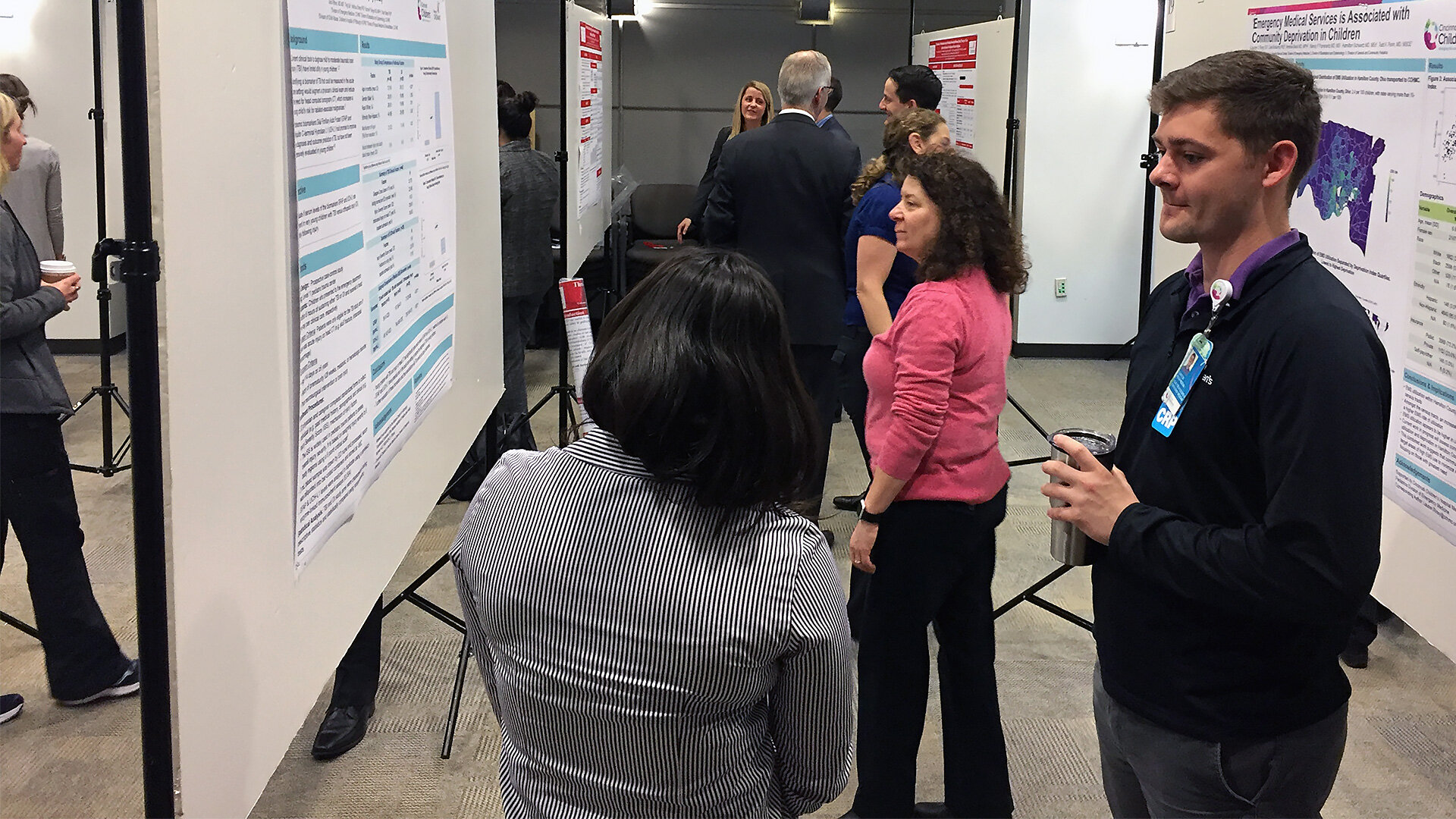
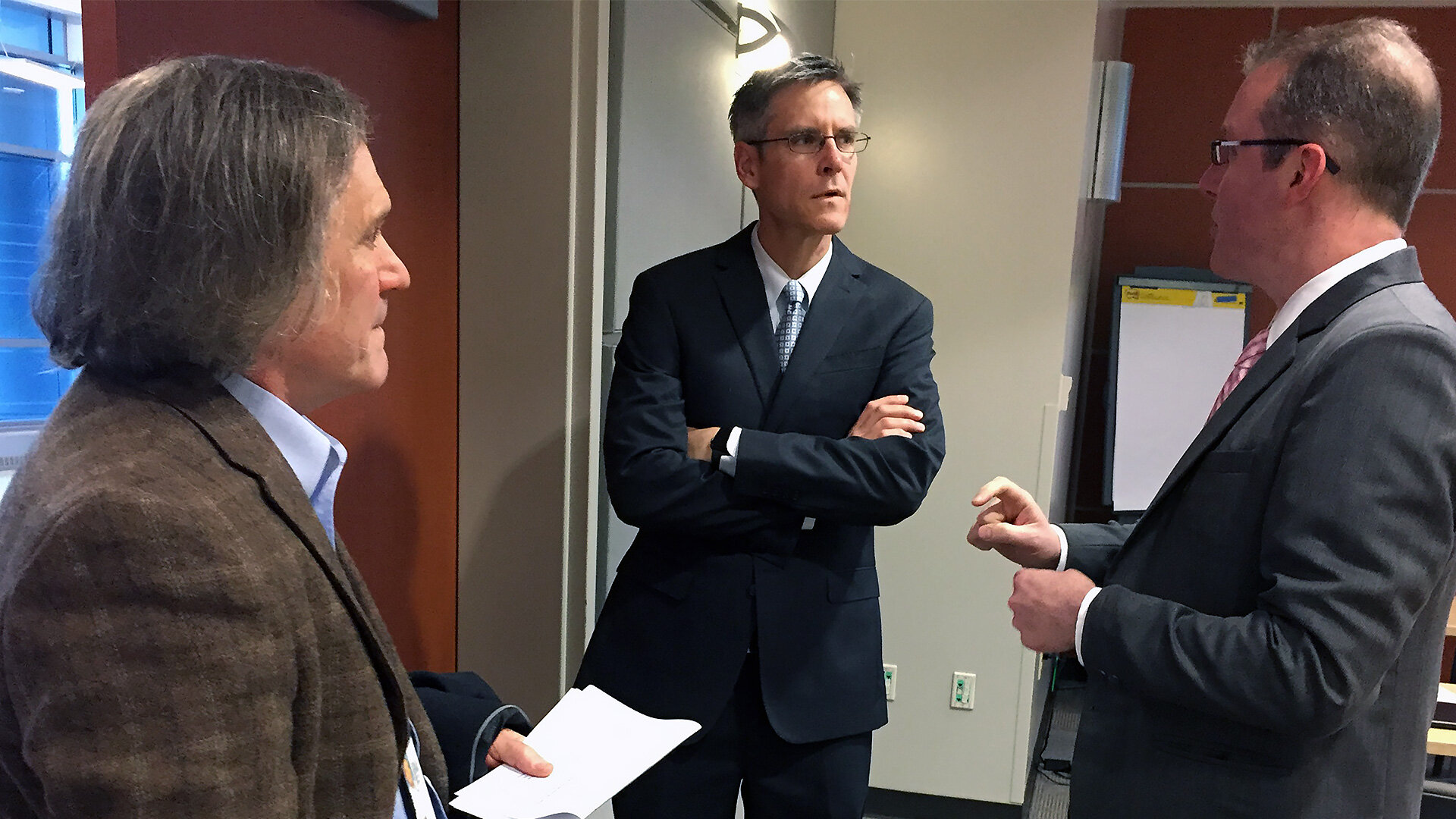
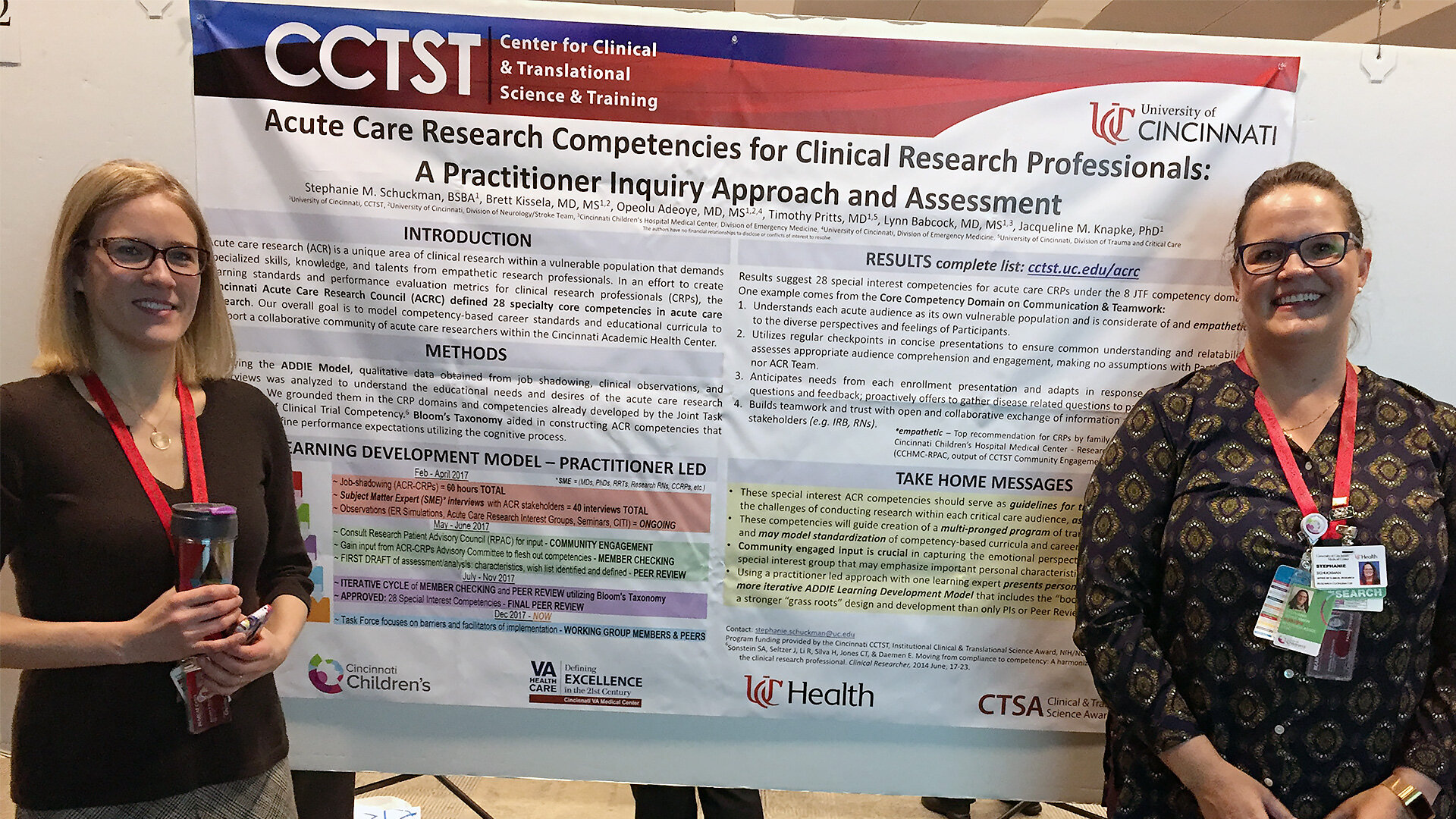
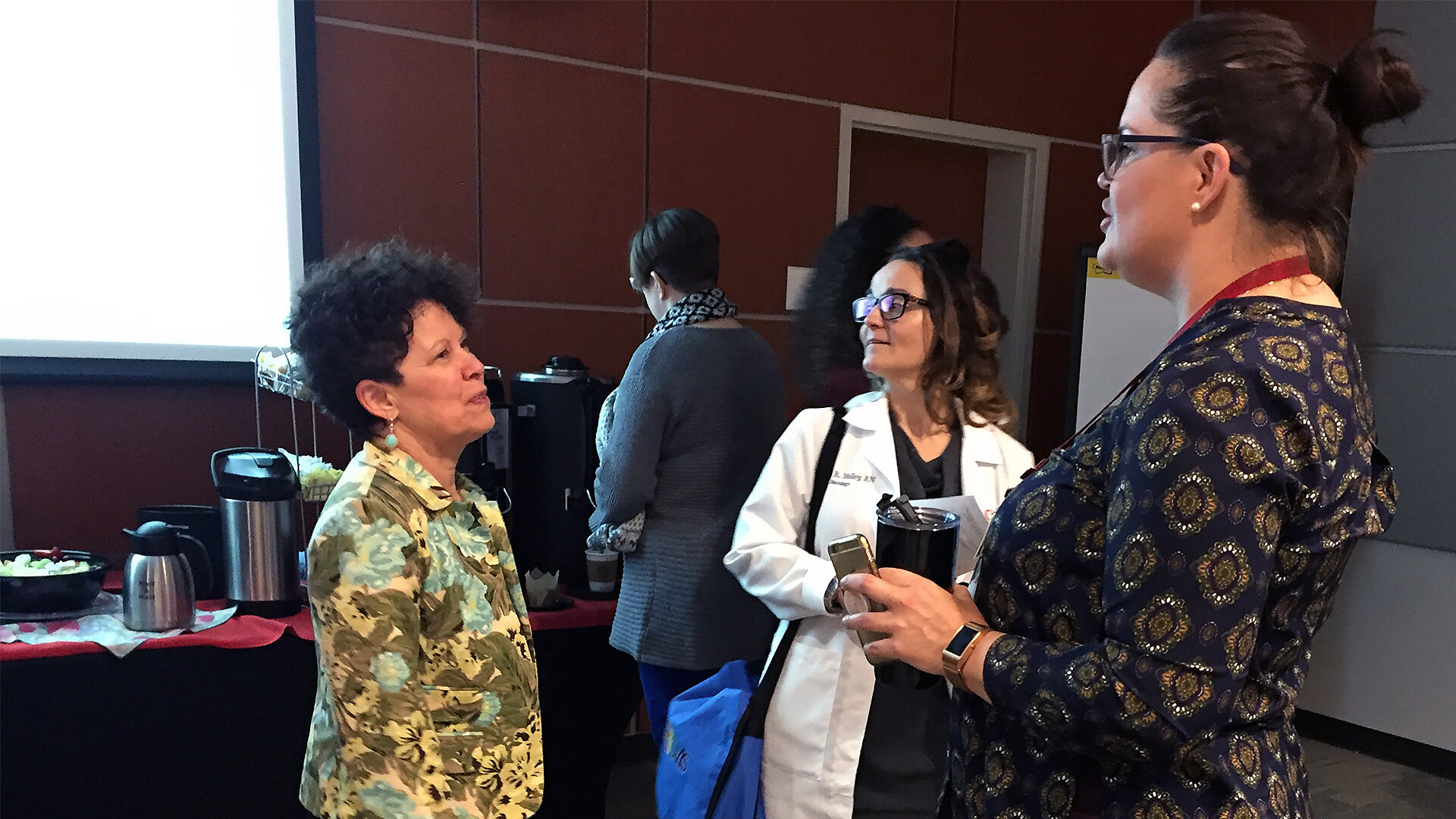
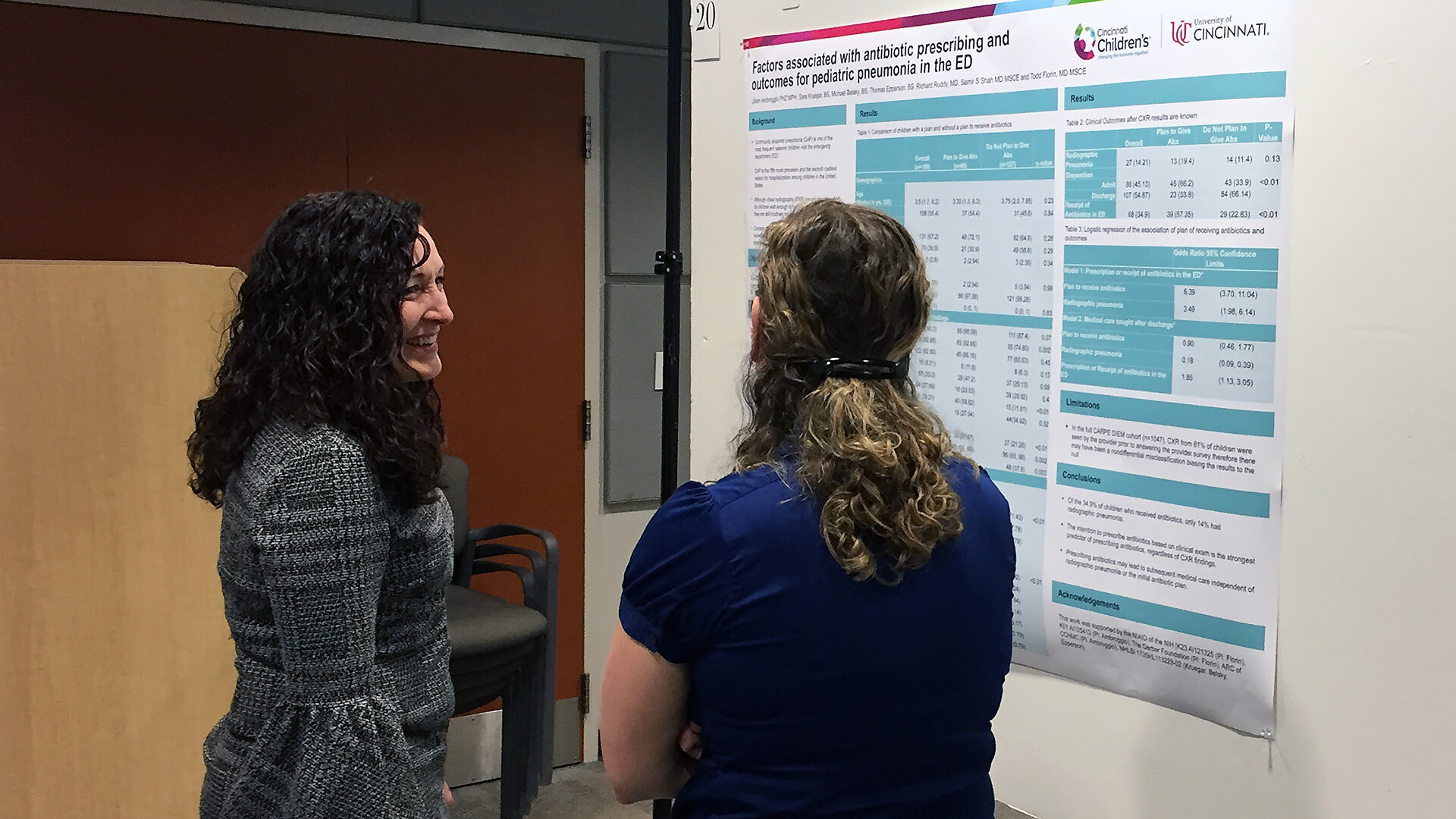
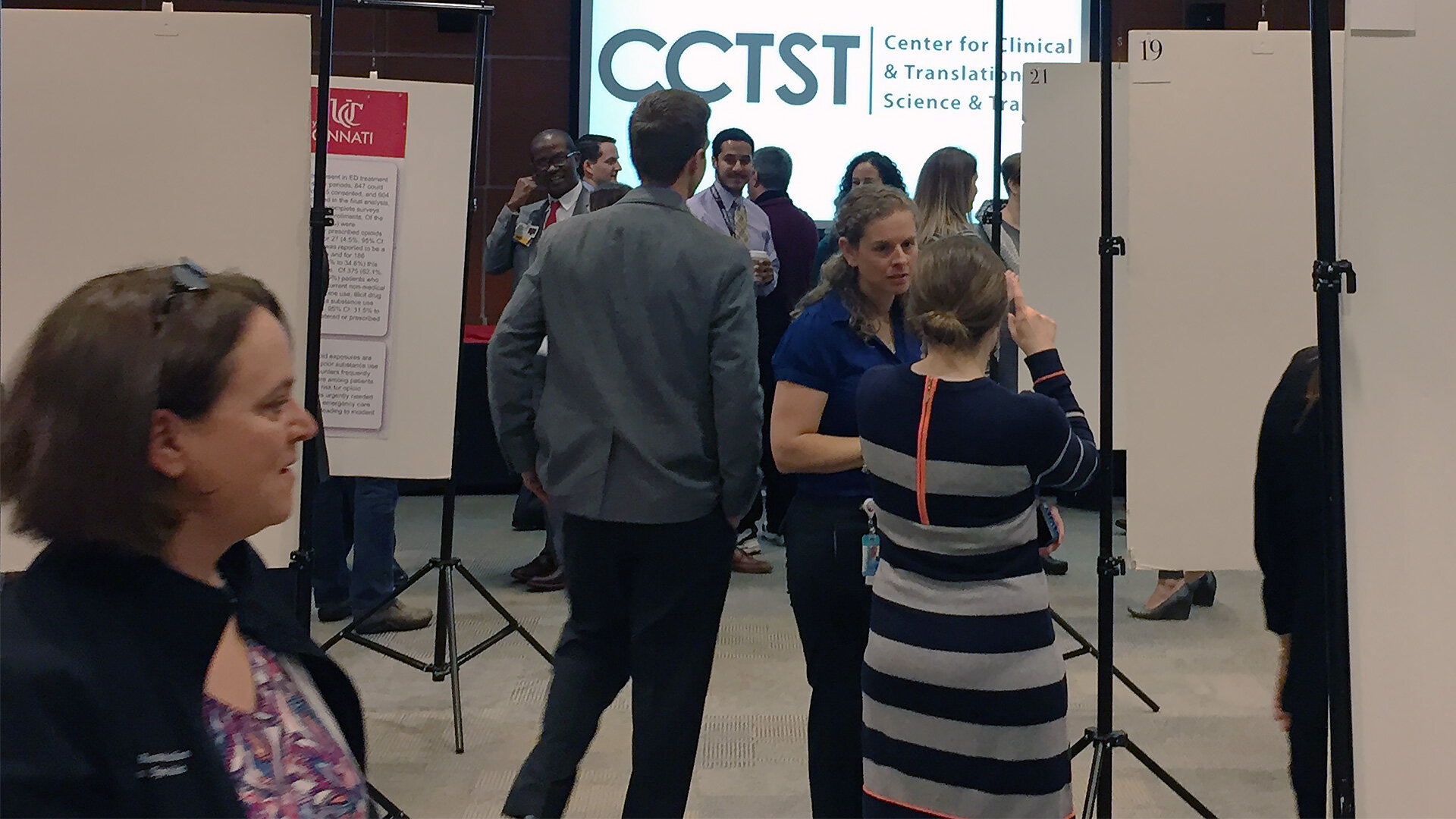
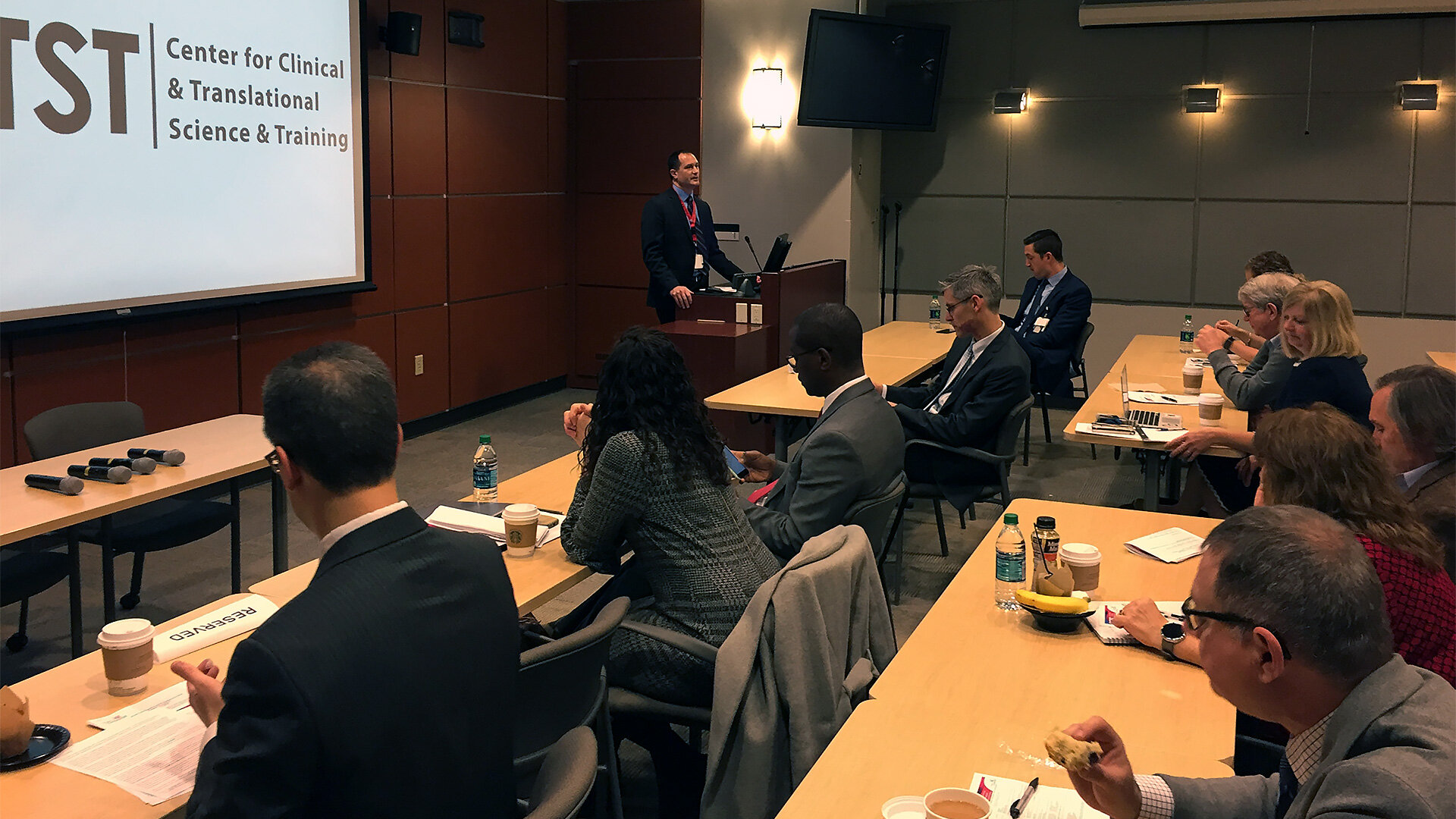
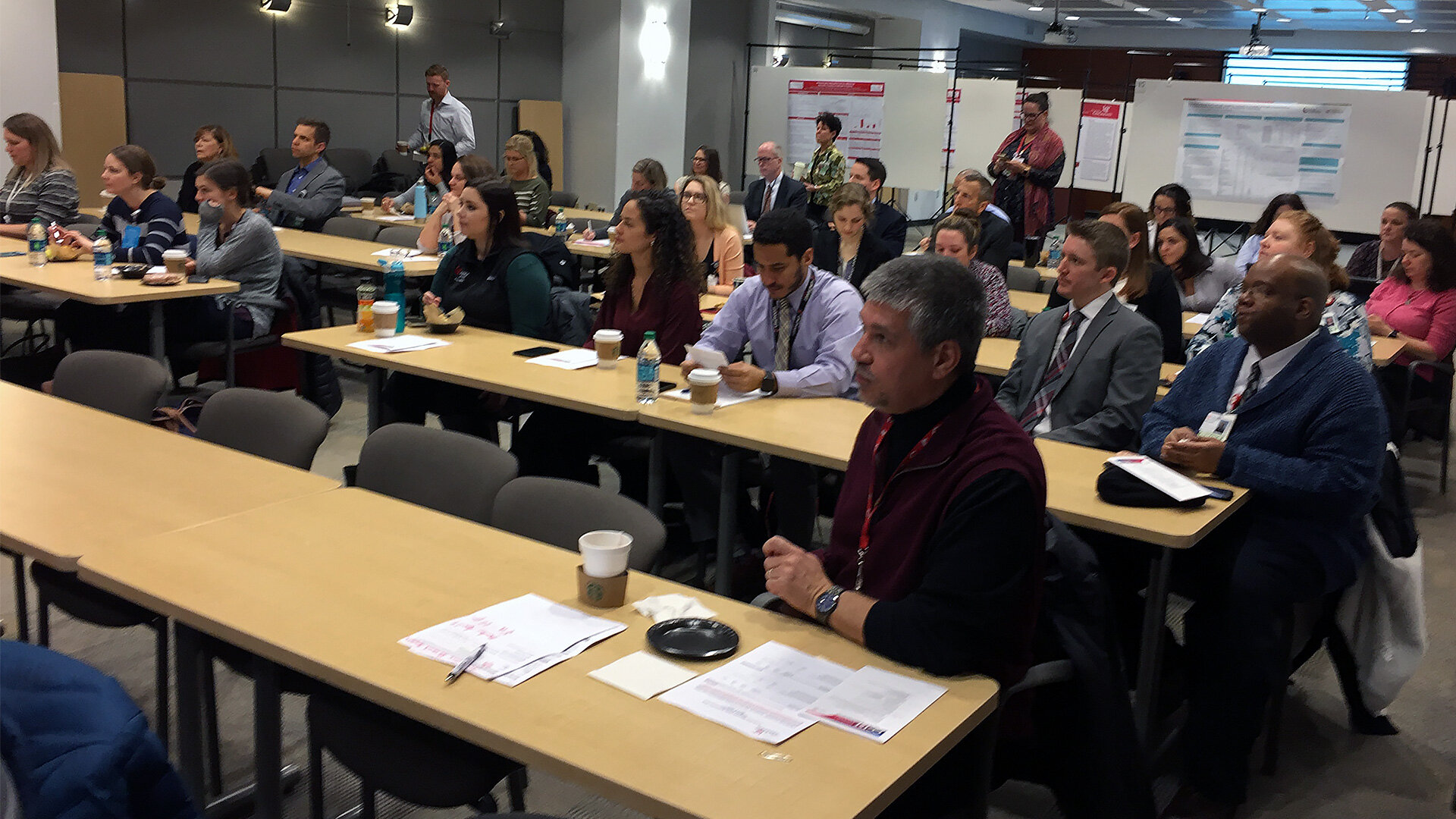
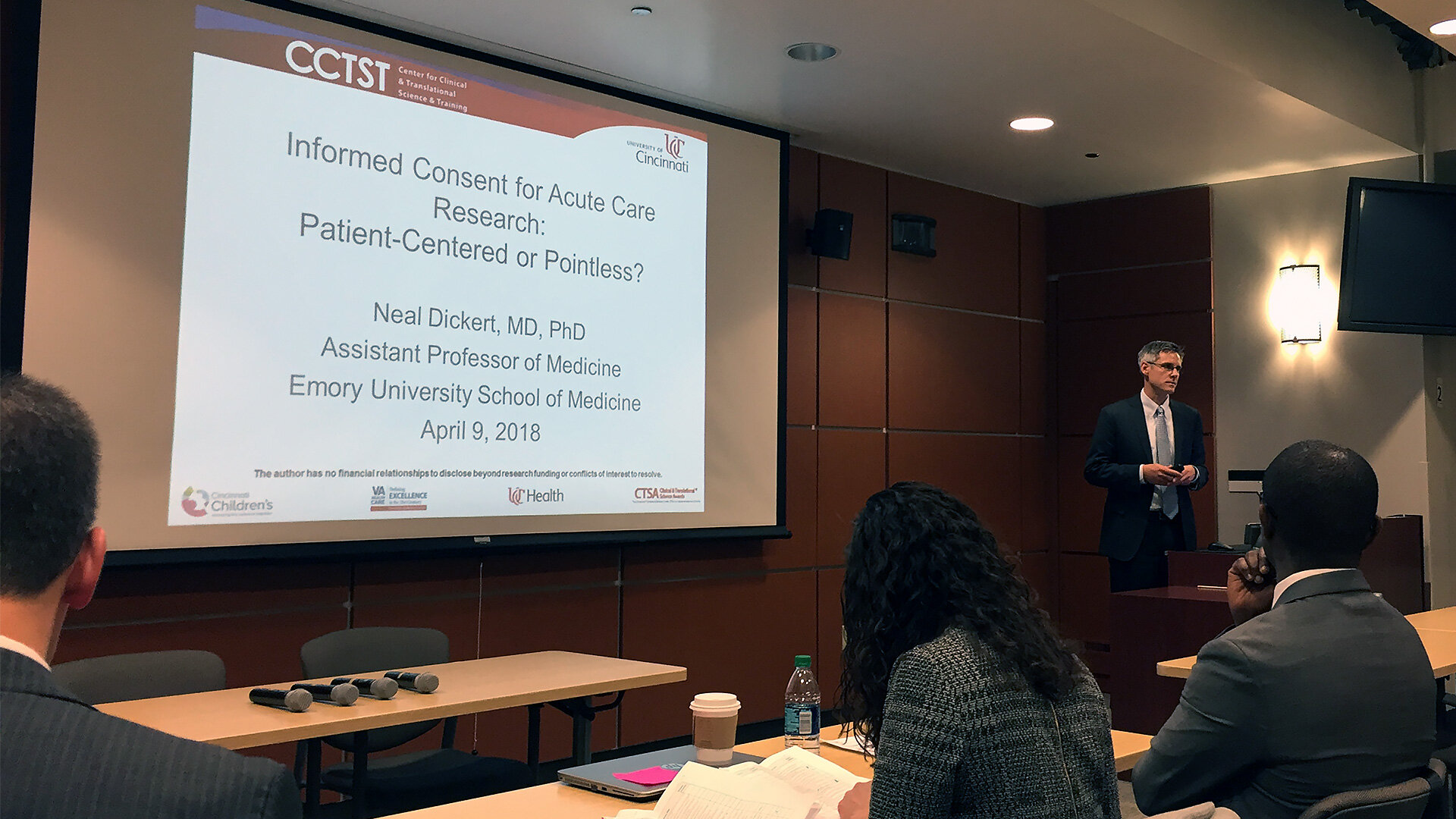
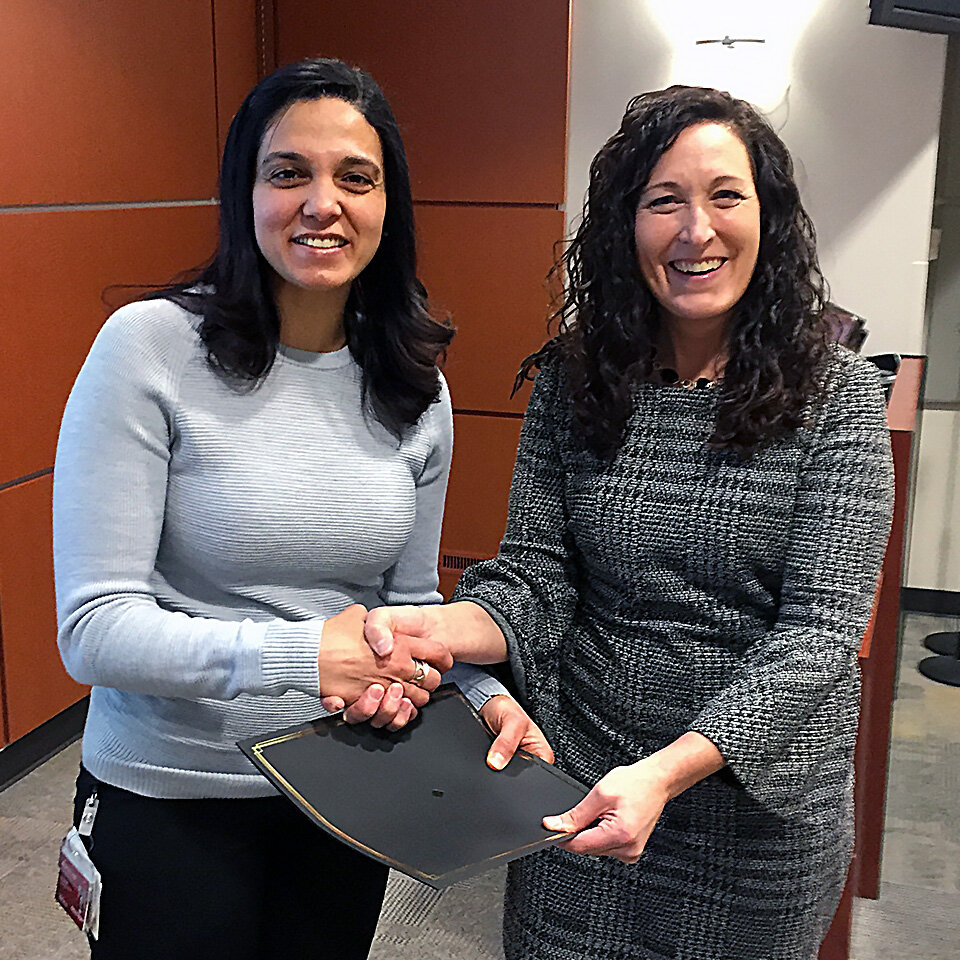
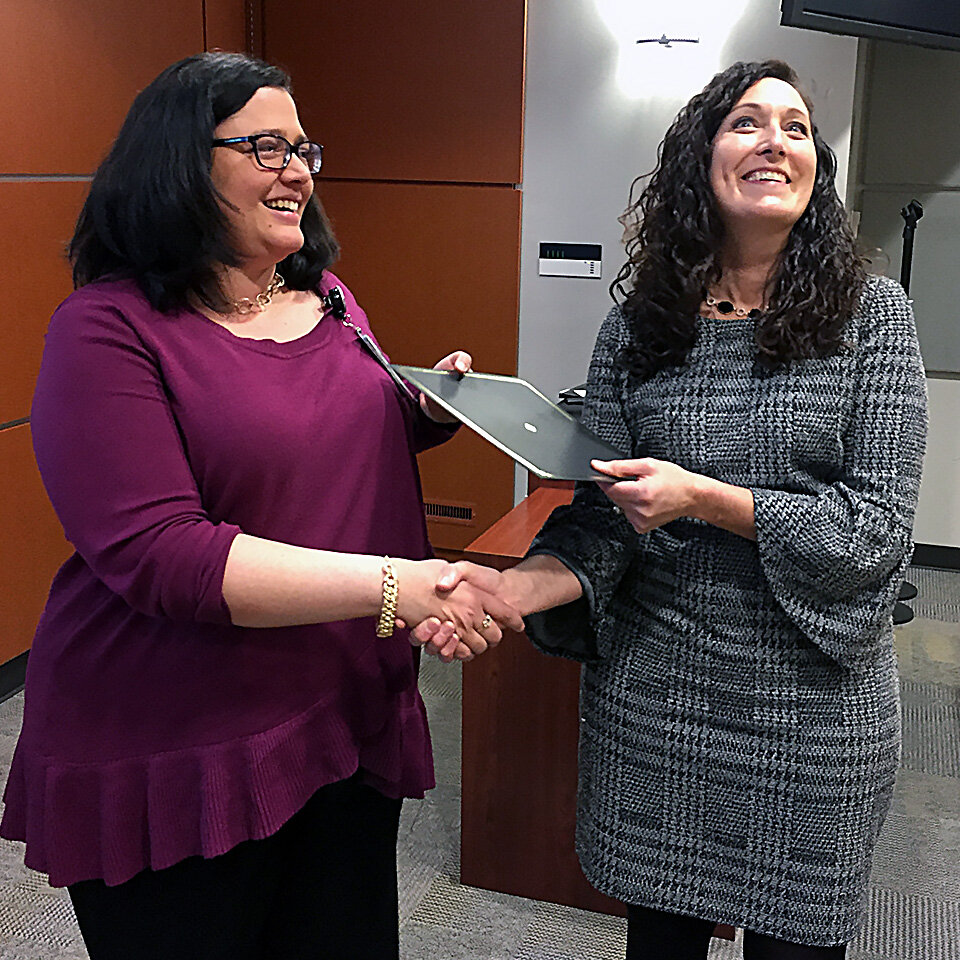
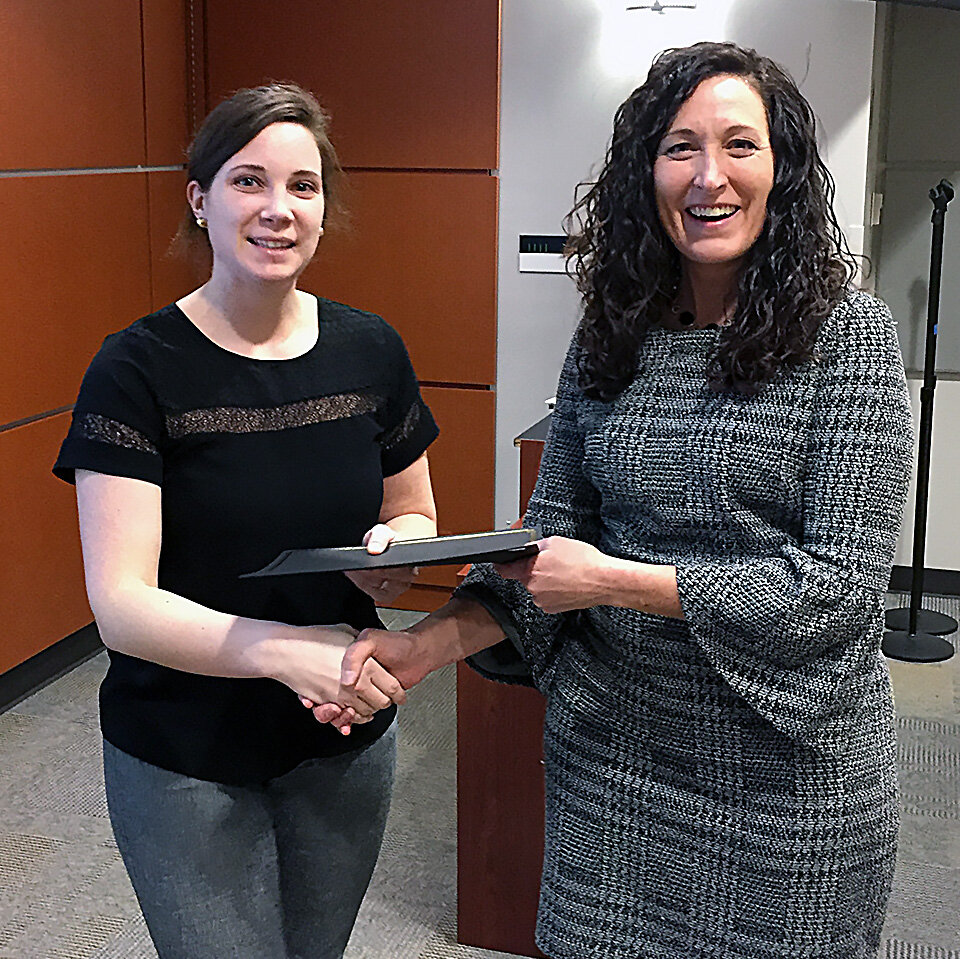
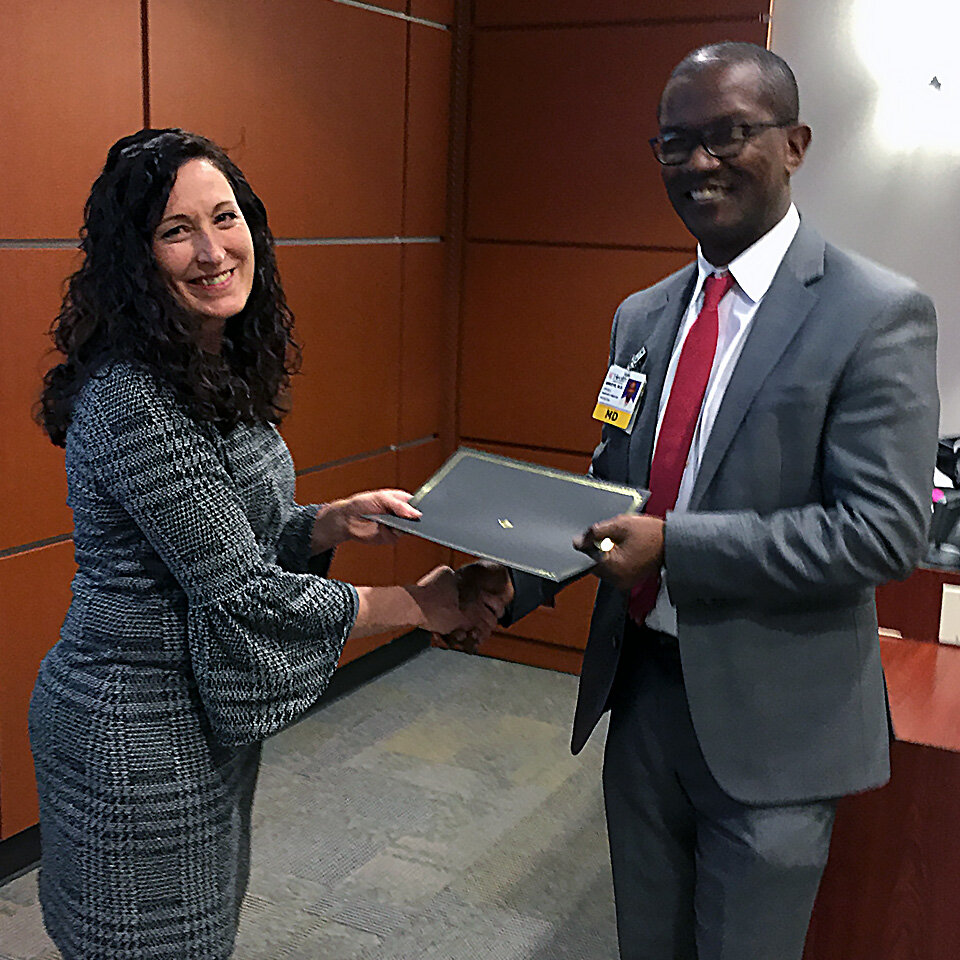
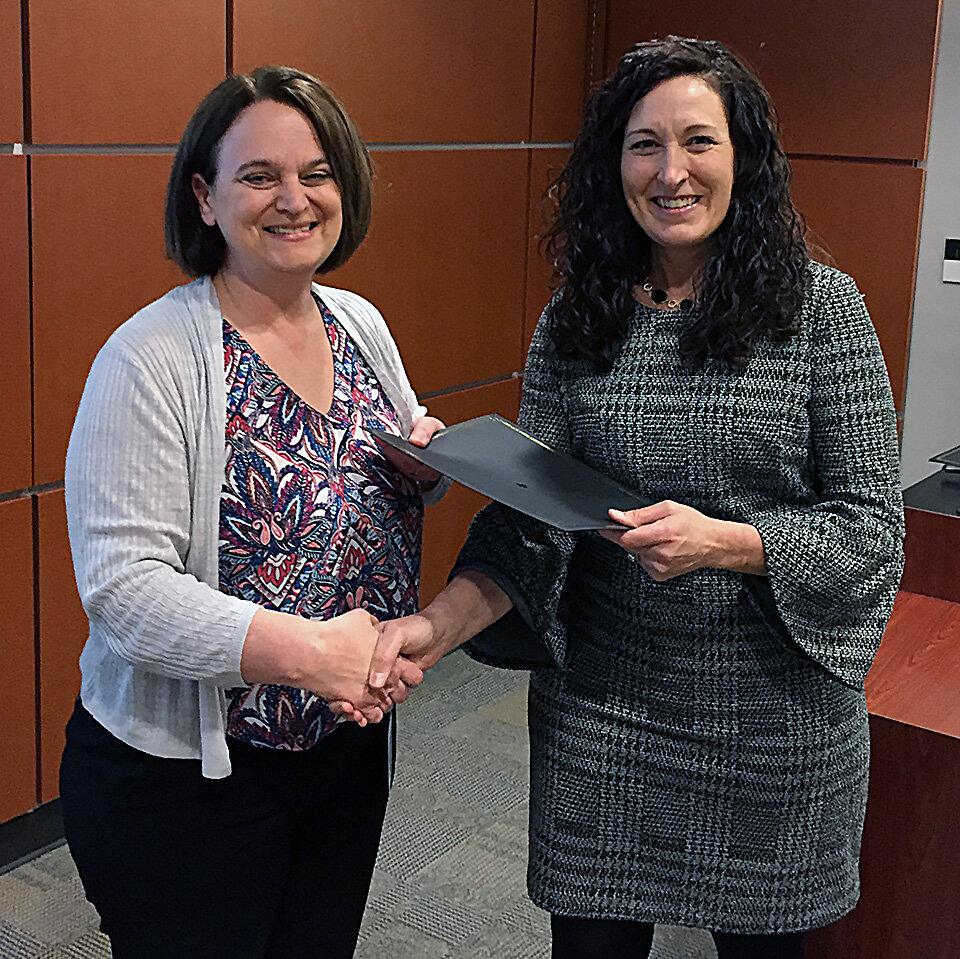
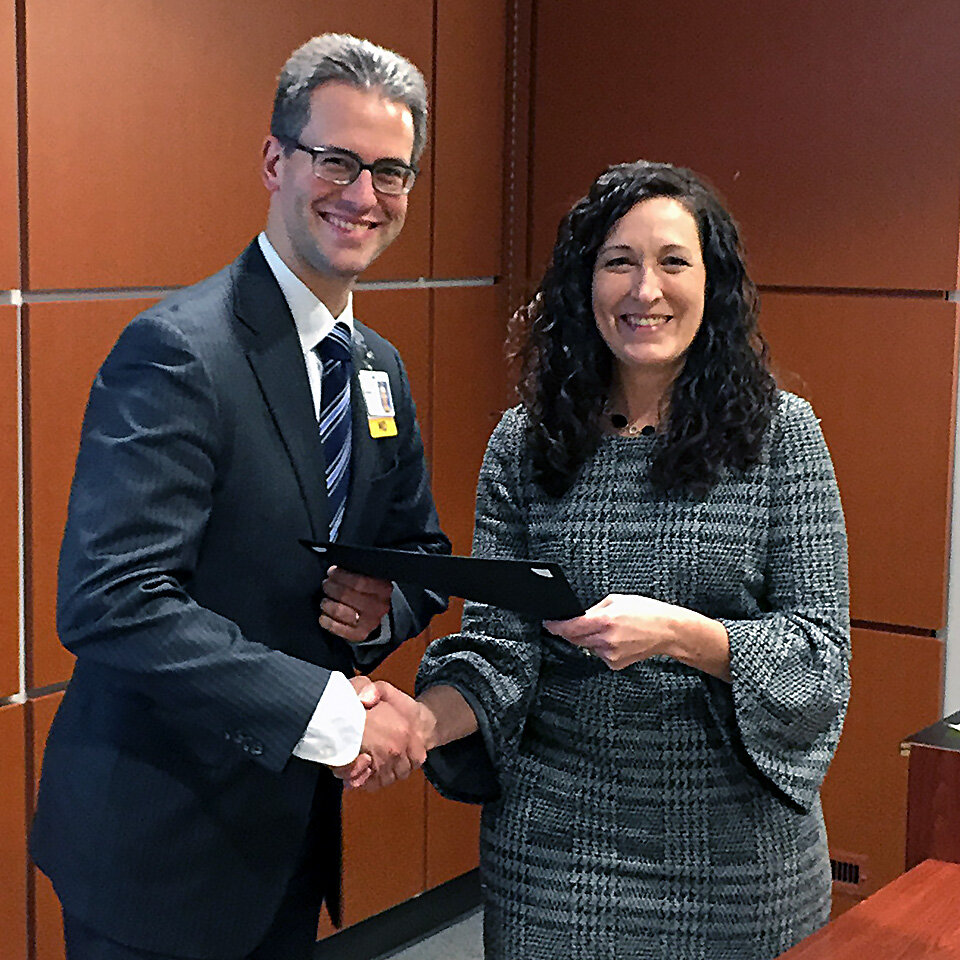
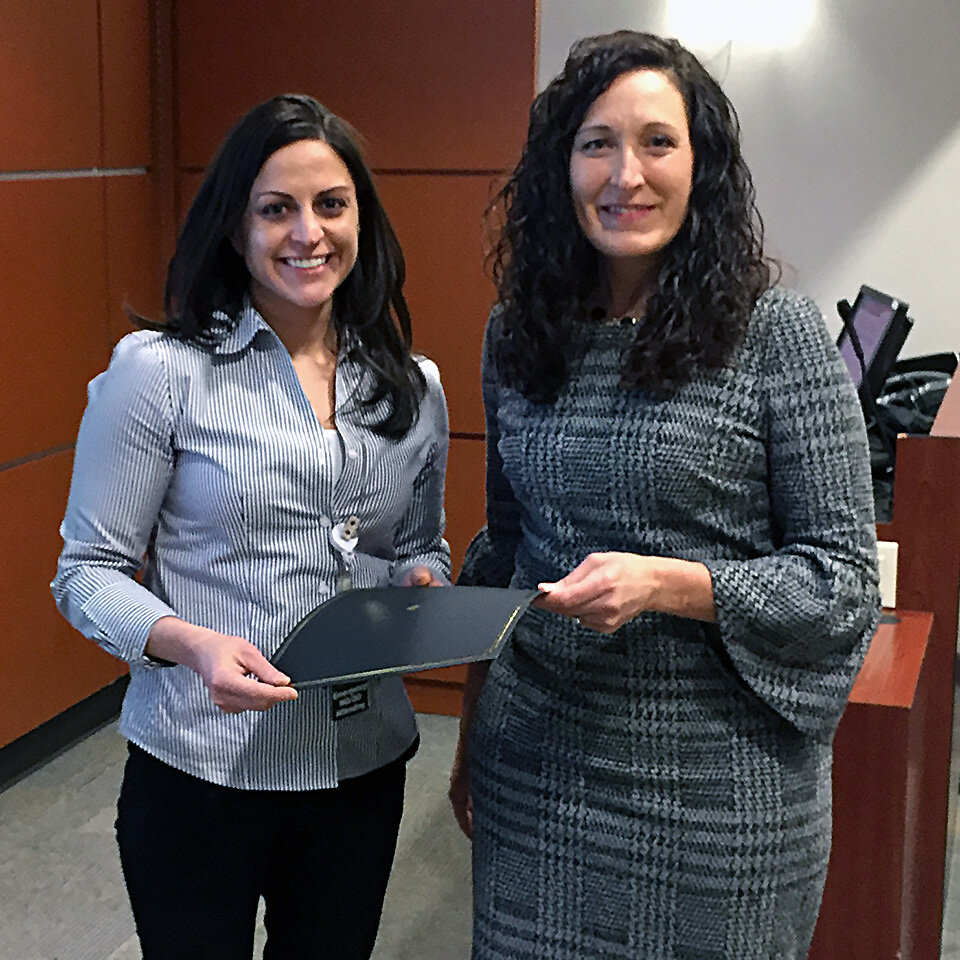
Presented in conjunction with Research & Innovation Week 2018, organized by the UC Office of Research. Supported by a grant from the UC College of Medicine.
For more information, email ACRC program manager Amy Ewing or call (513) 803-8365.
Compassionate Use: The Ethics and Logistics of Using Investigational Medical Products Outside of Clinical Trials - CCTST Grand Rounds
Compassionate Use: The Ethics and Logistics of Using Investigational Medical Products Outside of Clinical Trials was the topic of CCTST Grand Rounds March 16, 2018.
Featured presenter was Alison Bateman-House, PhD, MPH, MA, assistant professor in the Division of Medical Ethics, Department of Population Health, NYU Langone Health.
Upon completion of the program, participants were able to explain the process of requesting non-trial use of an investigational medical product (aka compassionate use); discuss the recent legislative and regulatory shifts that are impacting companies' willingness to provide non-trial access to their investigational medical products; and describe the challenges that compassionate use poses for clinicians, investigators, companies, patient advocacy groups, regulators, and investors.
CCTST Just in Time Awardees Announced
Offered three times annually, the Just in Time (JIT) program enables investigators to use UC or CCHMC core facilities to obtain critical data for submission of a competitive extramural proposal, patent application or commercialization agreement.
Four grants totaling $30,000 were made in the February 2018 cycle. Congratulations to our awardees!
Community Engagement Fall Speaker Series 2017
The CCTST Community Engagement Fall Speaker Series featured three events November 14-15, 2017:
Community Health Awards Reception and Dinner
The 2017 Community Health Awards Reception and Dinner, 6:00 PM Tuesday, November 14, 2017 in Music Hall's newly restored Corbett Tower, 1241 Elm St. included a keynote presentation by Alondra Nelson, PhD who discussed Genomic Research & Health: What Does Race & Community Have To Do With It? Joining her was Vence Bonham, JD, an associate investigator in the National Human Genome Research Institute (NHGRI). Community Health Awards were presented to recognize community health advocates, research partnerships, students, and community physicians/groups. Click here to view Community Awards Dinner flyer.
Dr. Nelson is president of the Social Science Research Council and professor of sociology at Columbia University, where she served as the inaugural Dean of Social Science. A scholar of science, medicine, and social inequality, her recent books include The Social Life of DNA: Race, Reparations, and Reconciliation after the Genome and Body and Soul: The Black Panther Party and the Fight Against Medical Discrimination. She is chair of the American Sociological Association's Science, Knowledge, and Technology section and serves on the Board of Directors of the Data and Society Research Institute.
Mr. Bonham has served as an associate investigator in the National Human Genome Research Institute (NHGRI) since 2003. He leads the Health Disparities Genomics Unit, focusing his research primarily on the social influences of new genomic knowledge, particularly in communities of color. He studies how genomics influences the use of the constructs of race and ethnicity in biomedical research and clinical care and the role of genomics in health inequities. Mr. Bonham also serves as the senior advisor to the NHGRI director on genomics and health disparities.
2017 CCTST Community Advocacy, Partnership and Research Awards
The CCTST Community Advocacy, Partnership and Research Awards honor excellence in leadership, collaboration, and health promotion in the Greater Cincinnati/Northern Kentucky region.
The Community Health Advocate Award recognizes an individual in the community working in service who has demonstrated leadership and a passion for improving health. The individual’s efforts have advanced health and wellness in children and/or adults in the community. 2017 Awardees are:
O.N. Ray Bignall II, MD, Cincinnati Children’s Hospital Medical Center
(pictured with Lori Crosby, PsyD, CCTST Community Engagement core)Dena Cranley & Barbara Lynch, Cincinnati First Ladies for Health
Kevin Lab, Saint Vincent de Paul
Rev. Rousseau O’Neal II, Rockdale Baptist Church (awarded posthumously)
Latisha Owens, Guiding Light Mentoring
The Academic-Community Research Partnership Award honors an academic-community partnership that works collaboratively to facilitate innovation in research or quality improvement to impact the health of children, adults and/or communities. 2017 Awardees are:
Shelterhouse of Greater Cincinnati, in partnership with University of Cincinnati
Super Seeds, in partnership with UC Medical Center
Every Child Succeeds, in partnership with Cincinnati Children's Hospital Medical Center
Cincinnati-Hamilton County Community Action Agency, in partnership with Freestore Foodbank
The Academic-Community Partnership Student Award recognizes an undergraduate student, graduate/medical student, resident, or fellow who demonstrates commitment, passion and innovation in an academic-community partnership project aimed at improving the health of children, adults and/or communities. 2017 Awardees are:
Brendan Andres, University of Cincinnati College of Medicine
Ilana Bergelson, University of Cincinnati College of Medicine
Anthony DeMarco, University of Cincinnati College of Medicine
UC Nutri-Ed, University of Cincinnati
The Practice-Based Research Award recognizes a community physician or practice that works collaboratively with an academic program or institution to improve the health and wellness of their patients by integrating research and best practices in clinical care. 2017 Awardees are:
Ernest Ciambarella, MD
Centering Pregnancy Prenatal Clinic at The Christ Hospital
Congratulations to all of our Awardees!
Grand Rounds - November 2017
The Speaker Series also featured Mr. Bonham at a Community Forum and Grand Rounds on November 15, 2017 in Cincinnati Children's MERC Building, Oak Campus, 620 Oak St.
View Grand Rounds recording (CME not available)
These events were co-sponsored by the Center for Pediatric Genomics at Cincinnati Children's. Hospital For more information, email Stacey Gomes or call (513) 803-0917.
Abundance of Accolades for ACRC's former Co-Director Christopher Lindsell, PhD
It was with a mix of appreciation, sadness and celebration that we wished farewell to Chris Lindsell at our June 2017 meeting. These sentiments were shared campus-wide, as expressed so eloquently by Dr. Arthur Pancioli, Professor and Chairman of UC's Department of Medicine (read more).
Whether he was your colleague, supervisor or mentor, you easily 'caught' his fever for collaboration as the key to accelerating research innovation. His special passion for acute care research left us more empowered to reach our ACRC vision of ‘ascending to a nationally-acclaimed best practice program recognized for its unparalleled advancement of acute care research.’
Though Chris’ leadership will be deeply missed, we wish him all the best as he shares his remarkable collaborative spirit with the fortunate folks at Vanderbilt Institute for Clinical and Translational Research - beginning this August.
RPAC Celebrates One Year Anniversary
This past February the Research Participant Advisory Council (RPAC) celebrated its 1-year anniversary, marking a year of providing guidance on how to improve the research participant experience across the academic health center. Established by a group led by Becca Harper DNP, RN, CTRC Director of Operations, the RPAC has provided invaluable feedback to Cincinnati Children’s Hospital Medical Center (CCHMC) over the past year on research participant issues such as consent/assent, Clincards and genetic reports for families. As a result of their work, a more participant-friendly assent form has been created; changes have been made to the hospital provided Clincard information sheet and process, and a participant-minded genetic pamphlet and video has been crafted.
The 30-member RPAC consists of research participants (children and adults) and parents/guardians of participants and range in age from 12 to 58 years. The objectives of the RPAC are to:
Partner research participants and families with members of the research community to provide guidance on how to improve research across the academic health center, with a focus on participant experiences and building relationships of trust.
Establish best practices and improvement initiatives to implement these changes.
Provide a formal referral system for other patient and family advisory councils across the institution looking to engage in research.
Humanize the face of research at the institution and in the surrounding communities.
Provide an infrastructure for investigators wishing to include patients and families in their research and study design.
In January, Julie Wijesooriya, MPA, CTRC Research Community Liaison, came on board to CCHMC and is now facilitating the RPAC. In addition to working with the current RPAC at CCHMC, she has been working in partnership with Melinda Butsch-Kovacic, PhD, Associate Professor in Asthma Research and Alexis Kidd, Director of Seven Hills Neighborhood Houses, to create a community-based advisory board in the West End at Seven Hills. This 20-member West End Community Research Advisory Board will meet for the first time in June to address community research occurring in their neighborhood, with the following objectives:
Engaging researchers to ensure they support the West End’s health goals in addition to collecting their study data
Providing input on how to make research easier and more understandable for the West End community
Guiding what research happens in the West End.
As part of their first meetings, they will have a 2-part training on participant research ethics, to better understand what protections are in place for research participants.
Need feedback for a Study/Project? Want to engage the community in research? The RPAC can help…
Need Research Participant input or a focus group for your study or project? Want ideas about how to engage the community? The RPAC and West End Research Community Advisory Board meetings are a great way to get feedback.
What?
Research Participant Advisory Council (RPAC) and West End Community Research Advisory Group
Who can utilize these Advisory Groups?
Anyone doing research-related work that would like feedback/input from research participants – regarding research at Children’s, as well as in the community.
When do these Advisory Groups meet?
Both advisory groups meet monthly in the evening throughout the year.
How would I schedule a meeting with one of these Advisory Groups?
Staff who are interested in utilizing either the RPAC or West End Community Research Advisory Board for their research studies or other projects can contact Julie Wijesooriya.
Also, if you are interested in helping with this work by serving as a staff representative or expert, please contact us. We would love to have your expertise!
The CCTST sponsors the RPAC and West End Research Community Advisory Board and provides monetary operations support.
Design Thinking Research Awards - May 2015 Grand Rounds
The May 15, 2015 CCTST Grand Rounds focused on healthcare improvement enabled by the Design Thinking Research Awards, a joint effort of the Live Well Collaborative (LWC) and CCTST.
An event flyer is available here.
Design thinking has been described as “devising courses of action aimed at changing existing situations into preferred ones.” Three projects were highlighted in which investigators worked with a multi-disciplinary team of UC design faculty and students assembled by the LWC to utilize design thinking tools and a “co-invention” model with stakeholders (e.g. patients) to develop innovative products or services to address a healthcare challenge.
Slides are linked from the presentation titles below:
Overview of Design Thinking and the Live Well Collaborative (LWC)
Linda Dunseath, executive director, LWC
Community-Connected Primary Care: Redesign of a Waiting Room
Adrienne W. Henize, JD
Division of General and Community Pediatrics, CCHMC
Success in Healthcare for Transitioning Foster Youth
Sarah Beal, PhD, Division of Behavioral Medicine and Clinical Psychology, CCHMC
Mary Greiner, MD, Mayerson Center for Safe and Health Children, CCHMC
J. Blake Lane, UC College of DAAP
A Design Thinking Approach to Developing an Educational Sickle Cell Trait Website
Charles Quinn, MD, Division of Hematology, CCHMC
Program objectives:
1. Understand design thinking and how the process can be used for healthcare improvement
2. Describe specific examples where design thinking was used to improve healthcare
3. Discuss the role of the Live Well Collaborative and CCTST in facilitating design thinking projects
